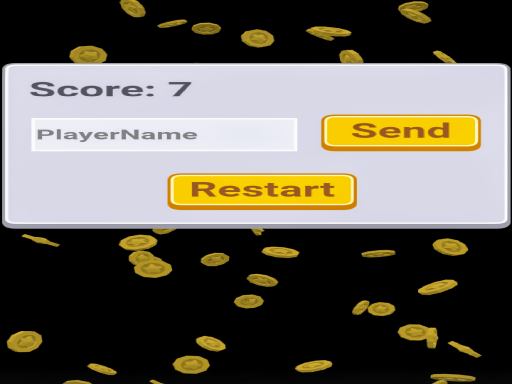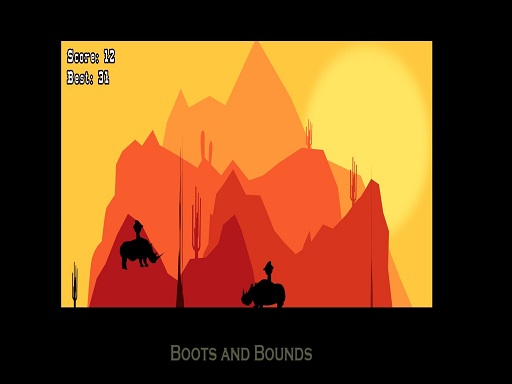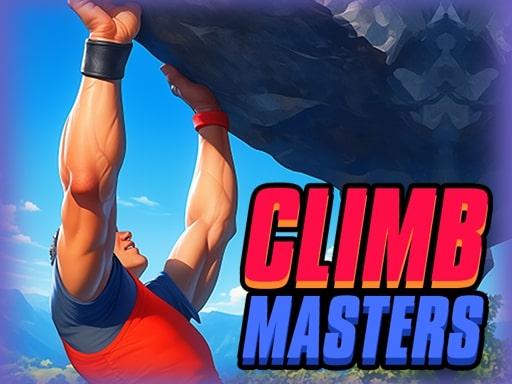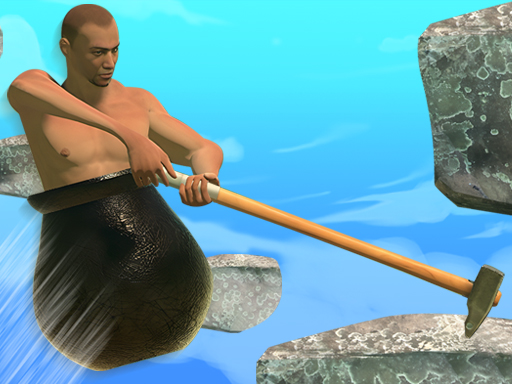Ropebound: Zenith Ques
About Ropebound: Zenith Ques
Okay, so you *have* to hear about this game I stumbled upon recently. Seriously, I'm still buzzing from my last session. It's called *Ropebound: Zenith Ques*, and honestly, I haven't been this genuinely captivated by a new discovery in ages. You know that feeling when you pick up a game, and within minutes, you just *know* it's something special? That's exactly what happened here. I mean, I've always been drawn to games that challenge your spatial awareness and precision, the ones where movement itself is a puzzle, but this… this takes it to a whole new level.
Imagine this: you're standing at the precipice of some impossibly beautiful, sprawling landscape. It could be a forgotten sky-city, its ancient spires piercing through a sea of clouds, or maybe a colossal, overgrown jungle canopy where the ground is a distant memory. The hero you're controlling, this incredibly agile character, is ready. And what they have, what you have, is this incredible grappling tool. It's not just a hookshot; it's an extension of your will, a way to defy gravity and dance through the air.
The core of it, the absolute heart of what makes *Ropebound* so addictive, is the movement. You see these glowing anchor points scattered across the environment, right? They're not just targets; they're opportunities. You latch onto one, and suddenly, you're not just swinging; you're a pendulum of pure momentum. The brilliant thing about this is that it's not just about getting from point A to point B. It's about *how* you get there. You're constantly calculating, in split-second decisions, the perfect moment to release, to launch yourself forward with the accumulated inertia, sometimes soaring across impossible gaps, sometimes dropping precisely onto a tiny platform. It’s like a ballet of physics, a continuous flow state where your brain and your thumbs are working in perfect, exhilarating harmony.
What I love about games like this is that initial learning curve. You know, when you first start, you’re fumbling a bit, misjudging distances, falling into the abyss more times than you’d care to admit. But then, something clicks. You start to understand the rhythm, the weight of your character, the arc of the swing. You begin to anticipate how letting go at the peak of an upward swing will send you higher, or how releasing at the bottom will give you that burst of horizontal speed. And when it clicks, oh man, it’s like unlocking a new sense. You start seeing the level not as a series of obstacles, but as a fluid path, a sequence of perfectly timed releases and grabs.
Each level in *Ropebound: Zenith Ques* feels like a meticulously crafted puzzle, but it’s a puzzle you solve with movement. It’s not about finding a key or pushing a block; it’s about mastering the environment. You might need to swing around a giant rotating gear, using its momentum to slingshot yourself even further, or perhaps you'll have to navigate a series of crumbling platforms, each one threatening to give way the moment you touch it. The tension in those moments, when you're hanging by a thread, literally, and the ground is hundreds of feet below, is just palpable. You can almost feel the wind rushing past you, hear the creak of the rope, and the thud of your character’s boots as they finally stick a landing.
And the satisfaction? Oh, the satisfaction of nailing a particularly tricky sequence! You know, the one where you have to swing from an anchor point, release, grapple to another mid-air, use *that* momentum to launch yourself towards a third, and then finally, gracefully land on the tiny, glowing exit platform. When you pull that off, it’s not just a sense of accomplishment; it’s a genuine rush of adrenaline, a fist-pump moment that makes you lean back in your chair and just breathe out a "Yes!" I've had so many of those moments already, and honestly, they're what keep me coming back.
The game isn't just about survival and getting to the end, though. There's a brilliant progression system woven into it. As you complete these increasingly complex levels, you're rewarded with gold. And this isn't just arbitrary currency; it feels like a tangible reward for your mastery, a testament to the skill you've developed. What's fascinating is what you can do with that gold: unlock new heroes. This isn't just cosmetic, either. Each new hero you unlock brings a subtly different feel to the game. Maybe one has a slightly longer grapple range, allowing for different approaches to certain jumps. Another might be a bit lighter, making them float just a fraction longer, opening up new strategies for air control. It encourages you to revisit earlier levels, not just for a better score, but to experiment with a new hero and see how their unique attributes change the flow, how they allow you to discover entirely new optimal paths you never even considered before. It adds so much replayability, because suddenly, a level you thought you'd mastered feels fresh and challenging again with a new character.
The visual design, too, is just stunning. I mean, the "Zenith Ques" part of the title isn't just for show. The environments are often breathtaking, evoking a sense of scale and wonder. You're not just swinging through generic corridors; you're traversing ancient ruins perched on impossible cliffs, or navigating through the skeletal remains of colossal, forgotten machines that still hum with residual energy. The way the light catches the edges of these structures, the subtle animations of distant clouds or flowing waterfalls – it all just draws you deeper into the world. You'll find yourself pausing, sometimes, just to take in the view, before remembering that you're in the middle of a perilous aerial journey.
There’s something magical about games that boil down to a core, perfectly executed mechanic, and then build an entire world and challenge system around it. *Ropebound* does exactly that. It doesn't clutter itself with unnecessary lore dumps or complex skill trees. It focuses on the pure joy of movement, the satisfaction of overcoming physics-based puzzles with precision and timing. It's a game that makes you feel incredibly skillful, even when you're just barely scraping by. The frustration of failure is quickly overshadowed by the determination to try again, to tweak your approach, to find that perfect arc, that precise release point.
Honestly, I think what genuinely excites me about this type of game is how it taps into that primal desire for freedom of movement, that dream of flying or soaring. It’s not just a game; it’s an experience that makes you feel agile, powerful, and utterly in control of your destiny, even if that destiny is just getting to the next anchor point. The real magic happens when you stop thinking about individual button presses and start seeing the entire sequence as one fluid motion, a dance between gravity and momentum. It's a game that demands your full attention, but rewards it tenfold with moments of pure, unadulterated gaming bliss. You really, really need to check this one out. I have a feeling you'll be just as hooked as I am.
Imagine this: you're standing at the precipice of some impossibly beautiful, sprawling landscape. It could be a forgotten sky-city, its ancient spires piercing through a sea of clouds, or maybe a colossal, overgrown jungle canopy where the ground is a distant memory. The hero you're controlling, this incredibly agile character, is ready. And what they have, what you have, is this incredible grappling tool. It's not just a hookshot; it's an extension of your will, a way to defy gravity and dance through the air.
The core of it, the absolute heart of what makes *Ropebound* so addictive, is the movement. You see these glowing anchor points scattered across the environment, right? They're not just targets; they're opportunities. You latch onto one, and suddenly, you're not just swinging; you're a pendulum of pure momentum. The brilliant thing about this is that it's not just about getting from point A to point B. It's about *how* you get there. You're constantly calculating, in split-second decisions, the perfect moment to release, to launch yourself forward with the accumulated inertia, sometimes soaring across impossible gaps, sometimes dropping precisely onto a tiny platform. It’s like a ballet of physics, a continuous flow state where your brain and your thumbs are working in perfect, exhilarating harmony.
What I love about games like this is that initial learning curve. You know, when you first start, you’re fumbling a bit, misjudging distances, falling into the abyss more times than you’d care to admit. But then, something clicks. You start to understand the rhythm, the weight of your character, the arc of the swing. You begin to anticipate how letting go at the peak of an upward swing will send you higher, or how releasing at the bottom will give you that burst of horizontal speed. And when it clicks, oh man, it’s like unlocking a new sense. You start seeing the level not as a series of obstacles, but as a fluid path, a sequence of perfectly timed releases and grabs.
Each level in *Ropebound: Zenith Ques* feels like a meticulously crafted puzzle, but it’s a puzzle you solve with movement. It’s not about finding a key or pushing a block; it’s about mastering the environment. You might need to swing around a giant rotating gear, using its momentum to slingshot yourself even further, or perhaps you'll have to navigate a series of crumbling platforms, each one threatening to give way the moment you touch it. The tension in those moments, when you're hanging by a thread, literally, and the ground is hundreds of feet below, is just palpable. You can almost feel the wind rushing past you, hear the creak of the rope, and the thud of your character’s boots as they finally stick a landing.
And the satisfaction? Oh, the satisfaction of nailing a particularly tricky sequence! You know, the one where you have to swing from an anchor point, release, grapple to another mid-air, use *that* momentum to launch yourself towards a third, and then finally, gracefully land on the tiny, glowing exit platform. When you pull that off, it’s not just a sense of accomplishment; it’s a genuine rush of adrenaline, a fist-pump moment that makes you lean back in your chair and just breathe out a "Yes!" I've had so many of those moments already, and honestly, they're what keep me coming back.
The game isn't just about survival and getting to the end, though. There's a brilliant progression system woven into it. As you complete these increasingly complex levels, you're rewarded with gold. And this isn't just arbitrary currency; it feels like a tangible reward for your mastery, a testament to the skill you've developed. What's fascinating is what you can do with that gold: unlock new heroes. This isn't just cosmetic, either. Each new hero you unlock brings a subtly different feel to the game. Maybe one has a slightly longer grapple range, allowing for different approaches to certain jumps. Another might be a bit lighter, making them float just a fraction longer, opening up new strategies for air control. It encourages you to revisit earlier levels, not just for a better score, but to experiment with a new hero and see how their unique attributes change the flow, how they allow you to discover entirely new optimal paths you never even considered before. It adds so much replayability, because suddenly, a level you thought you'd mastered feels fresh and challenging again with a new character.
The visual design, too, is just stunning. I mean, the "Zenith Ques" part of the title isn't just for show. The environments are often breathtaking, evoking a sense of scale and wonder. You're not just swinging through generic corridors; you're traversing ancient ruins perched on impossible cliffs, or navigating through the skeletal remains of colossal, forgotten machines that still hum with residual energy. The way the light catches the edges of these structures, the subtle animations of distant clouds or flowing waterfalls – it all just draws you deeper into the world. You'll find yourself pausing, sometimes, just to take in the view, before remembering that you're in the middle of a perilous aerial journey.
There’s something magical about games that boil down to a core, perfectly executed mechanic, and then build an entire world and challenge system around it. *Ropebound* does exactly that. It doesn't clutter itself with unnecessary lore dumps or complex skill trees. It focuses on the pure joy of movement, the satisfaction of overcoming physics-based puzzles with precision and timing. It's a game that makes you feel incredibly skillful, even when you're just barely scraping by. The frustration of failure is quickly overshadowed by the determination to try again, to tweak your approach, to find that perfect arc, that precise release point.
Honestly, I think what genuinely excites me about this type of game is how it taps into that primal desire for freedom of movement, that dream of flying or soaring. It’s not just a game; it’s an experience that makes you feel agile, powerful, and utterly in control of your destiny, even if that destiny is just getting to the next anchor point. The real magic happens when you stop thinking about individual button presses and start seeing the entire sequence as one fluid motion, a dance between gravity and momentum. It's a game that demands your full attention, but rewards it tenfold with moments of pure, unadulterated gaming bliss. You really, really need to check this one out. I have a feeling you'll be just as hooked as I am.
Enjoy playing Ropebound: Zenith Ques online for free on FuegoGG. This Adventure game offers amazing gameplay and stunning graphics. No downloads required, play directly in your browser!
How to Play
Mouse click or tap to play





Comments
This game is awesome! I love the graphics and gameplay.
One of the best games I've played recently. Highly recommended!